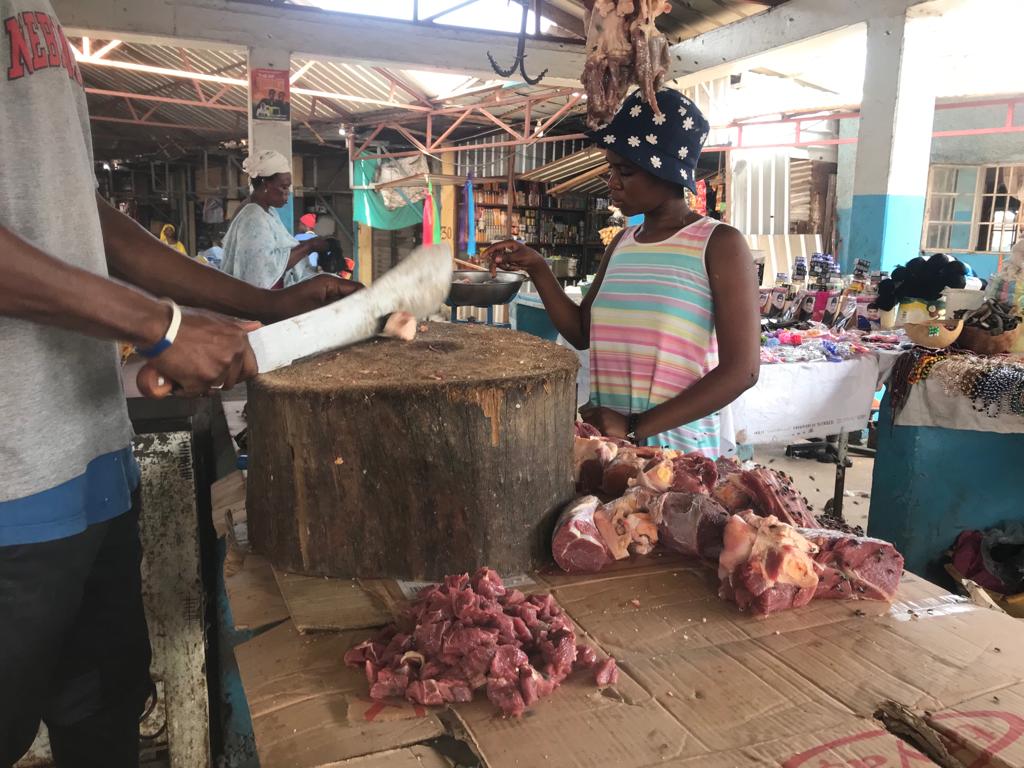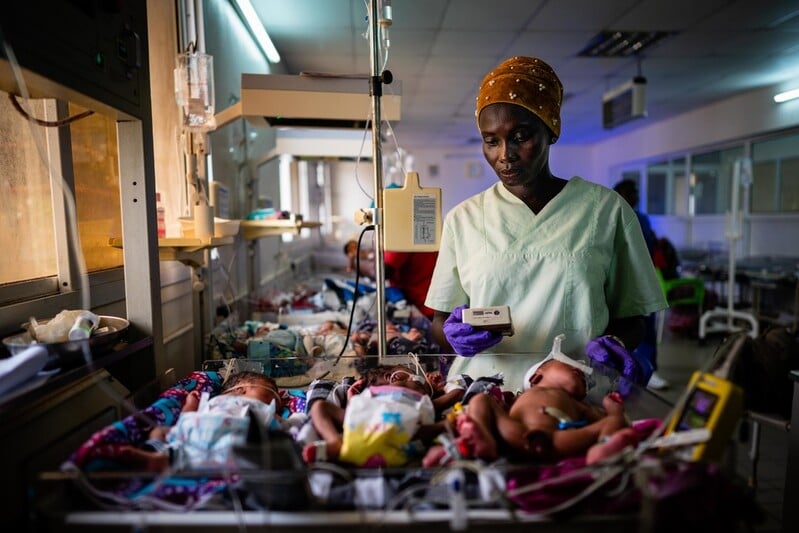The teams are made up of researchers from a variety of fields, including microbiology, genomics, environmental science, and sociology, and have been awarded £10,000 each to tackle pressing questions about antimicrobial resistance (AMR). Find out more about these projects and the researchers involved below.
A pilot investigation into antimicrobial resistance: Assessing perceptions and practices at a Gambian slaughterhouse
Team: Ebenezer Foster-Nyarko, Oche Awulu, Catherine Goodman, Shola Able-Thomas, Abdul Karim Sesay.
This collaborative project aims to explore the role that slaughterhouses and abattoirs play in the emergence and spread of AMR in The Gambia. Evidence from elsewhere suggests that they may be AMR hotspots due to antimicrobial use in livestock and environmental contamination, but more research is needed to investigate these underexplored aspects in The Gambia.
Specifically, the team will pilot the development of effective survey methodologies aimed at assessing the perceptions within the Gambian community regarding AMR and examine environmental samples near slaughterhouses to ascertain how they might contribute to the development or exacerbation of AMR.
Lead applicant, Ebenezer Foster-Nyarko, said: “We are thrilled and deeply honoured to be selected for this prestigious award. In particular, we are genuinely excited about the unique platform this project provides for the involvement and development of early career researchers (ECRs) such as me, empowering us to contribute our fresh perspectives and expertise to this critical field while developing baseline data that can pave the way for our future research pursuits. We sincerely thank the AMR Centre for entrusting us with this invaluable opportunity!”
Understanding within-host diversity of Klebsiella pneumoniae carriage in Gambian small newborns and their mothers
Team: Helen Brotherton, Saffiatou Darboe, and Abdoulie Bojang.
Multi-drug resistant Klebsiella pneumoniae (MDR-Kp) infections are a major public health emergency for African newborns, but transmission pathways are not yet fully understood in low resource settings.
Using samples collected in a previous clinical trial at a neonatal unit in The Gambia, this project aims to understand the diversity of the MDR-Kp bacteria in the intestines of newborns and their mothers. This will provide the genetic data needed to undertake a larger study to understand how these bacteria are acquired by the newborns.
Lead applicant, Helen Brotherton, said: “AMR infections are an important cause of illness and mortality in neonates in all settings, but especially low-resource neonatal units. I am very excited to work with colleagues at MRC Unit The Gambia at LSHTM to understand the diversity of MDR-Kp carriage and use the findings to plan future research to explore how hospitalised small neonates acquire these pathogens"
We look forward to seeing the results emerge from these pilot projects.
Our postgraduate taught courses provide health practitioners, clinicians, policy-makers, scientists and recent graduates with a world-class qualification in public and global health.
If you are coming to LSHTM to study a distance learning programme (PG Cert, PG Dip, MSc or individual modules) starting in 2024, you may be eligible for a 5% discount on your tuition fees.
These fee reduction schemes are available for a limited time only.


